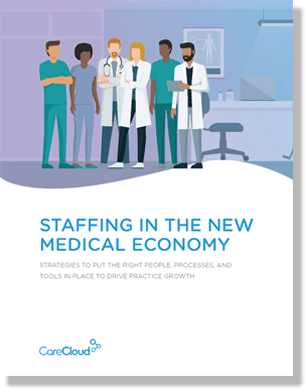As the mobile health industry continues to flourish with no sign of slowing down, FDA concerns about health apps have intensified as well.
Today, there are more than 40,000 health and wellness apps on the market with mobile health revenues projected to climb into the billions by 2016.
FDA apprehensions stem from the critical distinction between health apps and wellness apps. While wellness apps enhance or track the overall health of the user, health apps are categorized as mobile software that diagnoses, track or treat disease.
Health apps can monitor patients outside of the hospital, track vitals or even analyze medical images for physicians.
Because many of these apps can have serious consequences on patient health, the FDA has decided to step in and mandate certification. Eventually, the FDA hopes to monitor and regulate all health apps.
According to a recent FDA testimony before the House Energy and Commerce Subcommittee on Oversight and Investigations, any apps used for diagnosing critical conditions, regulating drug delivery, or monitoring critical care factors like blood oxygen levels are subject to FDA scrutiny.
“FDA believes it is important to adopt a balanced, approach to mobile medical apps that supports continued innovation, assuring appropriate patient protections,” said Christy Foreman, FDA’s Director of the Office of Device Evaluation, in her statement.
The agency does not intend to regulate apps that track a person’s daily steps, enable patients to refill prescriptions, search medical references, provide electronic health record services or offer similar services.
Nor will they oversee mobile devices, such as iPhones and tablets, which might run medical apps.
“We believe that focusing FDA oversight on a narrow subset of mobile apps will encourage the development of new products while providing appropriate patient protections,” Foreman added.
As of now, FDA is only reviewing 20 apps a year using a similar approach to how it analyzes non-medical substances like food additives and herbal remedies.
Because the number of apps reviewed will not increase anytime soon, it’s important to know which apps are worth your precious time and money. Therefore, PYP has compiled a list of the best FDA approved health apps and devices just for you.
Mobile MIM
The first medical app ever to be included in iTunes stores, Mobile MIM is designed to share images from radiation oncology, radiology, nuclear medicine, neuroimaging and cardiac imaging. The health app is intended to enhance physician access to image scans to help them consult with peers on challenging cases, reduce image distribution delays, and share images with referring physicians, partner institutions, and patients.
AliveCor
AliveCor turns your smartphone into an electrocardiogram by snapping onto the back of any iPhone. To take cardiac measurements, the user presses the device against the skin found near the heart. The device has received much recognition for its mobility and the anticipation of its capability to catch irregular heart rhythms earlier.
Diabetes Manager by WellDoc
This device works by capturing blood-glucose information and transmitting it in real-time. WellDoc’s system analyzes the data and offers a personalized coach to help patients manage their medication and treatment. It also promotes interaction between healthcare professionals and patients by assessing where users need help most.
Welch Allyn iExaminer Adapter and Ophthalmoscope
Welch Allyn’s iExaminer app and ophthalmoscope are designed to make it easier to detect conditions like retinal detachment or glaucoma. The ophthalmoscope device plugs into most smartphones. The accompanying examiner app allows providers to store the pictures to a patient file or email and print them.
Gauss Pixel App
This app aims to provide doctors and nurses with a way to accurately measure the amount of blood loss in surgical procedures. After taking a picture of surgical sponges used during a procedure with either an iPad or iPhone, the app computes the amount of blood loss in real-time.
As it stands today, retrieving surgical sponges and assessing the blood loss in patients is something that is estimated typically by nurses, with no accurate way to retrieve the sort of information the Gauss Surgical app would provide.
AirStrip ONE
AirStrip ONE is a diagnostic aid that delivers patient data from medical devices, electronic medical records, and patient monitors to clinicians – in a single view on their smartphone or iPad. Clinical data includes vital signs, allergies, medications, medical images, and lab results with information generated from medical devices.
ResolutionMD
This medical viewing product provides instant access to radiology diagnostic images and reports from mobile devices. The app streams data from a variety of imaging modalities, with off-site servers preparing it for rapid visualization on a smartphone or tablet. Since most processing is done outside the mobile device, no sensitive patient information seems to be transmitted, making it a fundamentally secure process.
So there you have our recommendations for the most useful, not to mention the coolest, FDA approved health apps on the market for physicians.
As always, we’ll keep working on bringing you the latest and greatest in health IT. Sign up for our newsletter today to stay updated on all of our new articles.



